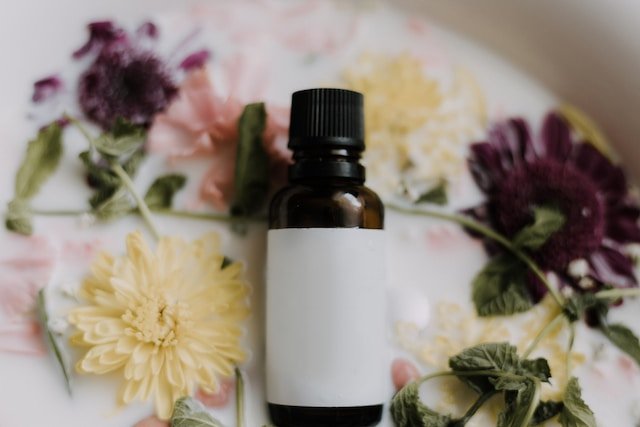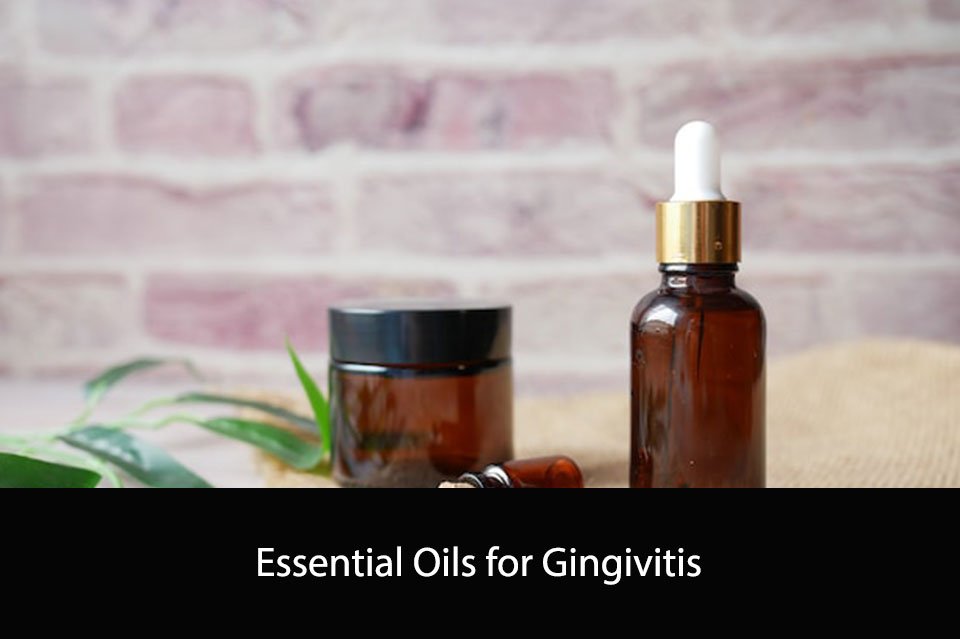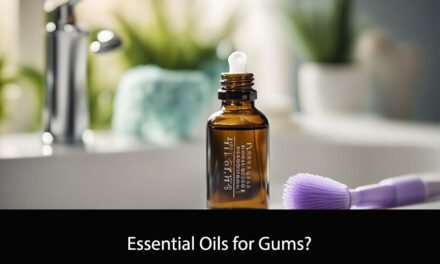Essential oils have been used for centuries to promote oral health and treat various dental problems. One common dental issue that can be treated with essential oils is gingivitis. Gingivitis is a mild form of gum disease that causes inflammation and bleeding of the gums. If left untreated, it can lead to more serious dental problems such as periodontitis.
Fortunately, essential oils have been found to be effective in reducing the symptoms of gingivitis. Essential oils such as tea tree oil, peppermint oil, and clove oil have antimicrobial and anti-inflammatory properties that can help to reduce the bacteria that cause gingivitis and soothe inflamed gums. In this article, we will explore the benefits of using essential oils for gingivitis and how to use them safely and effectively.

Understanding Gingivitis
Gingivitis is a common gum disease that affects many people worldwide. It is a mild form of periodontal disease that causes inflammation, redness, and swelling of the gums. Gingivitis is caused by the buildup of plaque on the teeth, which can lead to the growth of harmful bacteria that can damage the gums.
Symptoms of gingivitis include bleeding gums, bad breath, and receding gums. If left untreated, gingivitis can progress to periodontitis, a more severe form of gum disease that can lead to tooth loss.
There are several risk factors that can increase the likelihood of developing gingivitis, including poor oral hygiene, smoking, hormonal changes, and certain medications.
Fortunately, there are many natural remedies that can help to prevent and treat gingivitis. Essential oils are a popular choice for their antibacterial and anti-inflammatory properties, which can help to reduce inflammation and fight harmful bacteria in the mouth.
In the next section, we will discuss some of the best essential oils for gingivitis and how to use them effectively.
Essential Oils: An Overview
Essential oils are highly concentrated, aromatic oils extracted from plants. They are used for a variety of purposes, including aromatherapy, personal care, and medicinal purposes. Essential oils have been used for centuries to treat a variety of health conditions, including gingivitis.
When it comes to gingivitis, essential oils can be a powerful natural remedy. Many essential oils have antibacterial and anti-inflammatory properties, which can help reduce inflammation and fight the bacteria that cause gum disease.
Some of the most effective essential oils for gingivitis include:
- Tea tree oil
- Peppermint oil
- Clove oil
- Cinnamon oil
- Eucalyptus oil
These oils can be used in a variety of ways, including adding a few drops to your toothpaste or mouthwash, or using them in a homemade mouth rinse. However, it’s important to use caution when using essential oils, as they can be potent and may cause irritation if not diluted properly.
Overall, essential oils can be a safe and effective natural remedy for gingivitis. However, it’s important to talk to your dentist or healthcare provider before using essential oils, especially if you have any underlying health conditions or are taking medications.
The Connection Between Essential Oils and Gingivitis
Gingivitis is a common gum disease that causes inflammation, redness, and bleeding of the gums. It is caused by the buildup of plaque and bacteria on the teeth and gums. While proper oral hygiene is essential to prevent gingivitis, essential oils can also help in reducing the symptoms of gingivitis.
Essential oils are concentrated plant extracts that contain the natural essence and aroma of the plant. They have been used for centuries for their therapeutic properties and are known for their anti-inflammatory, antimicrobial, and antifungal properties.
Several essential oils have been found to be effective in treating gingivitis. These include:
- Tea Tree Oil: Tea tree oil is a potent antimicrobial agent that can help reduce the buildup of plaque and bacteria on the teeth and gums. It also has anti-inflammatory properties that can help reduce the inflammation and redness of the gums.
- Clove Oil: Clove oil is a natural analgesic that can help reduce the pain and discomfort associated with gingivitis. It also has antimicrobial properties that can help kill the bacteria that cause gingivitis.
- Peppermint Oil: Peppermint oil has a cooling and refreshing effect that can help reduce the inflammation and redness of the gums. It also has antimicrobial properties that can help kill the bacteria that cause gingivitis.
- Eucalyptus Oil: Eucalyptus oil has anti-inflammatory and antimicrobial properties that can help reduce the inflammation and redness of the gums. It also has a refreshing and cooling effect that can help reduce the discomfort associated with gingivitis.
In conclusion, essential oils can be an effective natural remedy for gingivitis. However, it is important to note that essential oils should not be used as a substitute for proper oral hygiene practices. It is always best to consult with a dentist before using essential oils for gingivitis.
Top Essential Oils for Gingivitis
If you are looking for a natural remedy for gingivitis, essential oils can be a great option. Here are some of the top essential oils for gingivitis:
Tea Tree Oil
Tea tree oil is one of the most popular essential oils for oral health. It has powerful antimicrobial properties that can help kill the bacteria that cause gingivitis. Some studies have also shown that tea tree oil can reduce inflammation and bleeding in the gums.
To use tea tree oil for gingivitis, you can add a few drops to your toothpaste or mouthwash. You can also dilute it with a carrier oil, such as coconut oil, and apply it directly to the gums with a cotton swab.
Peppermint Oil
Peppermint oil is another essential oil that can be beneficial for gingivitis. It has anti-inflammatory and antibacterial properties that can help reduce swelling and kill bacteria in the mouth. Peppermint oil can also freshen your breath and leave your mouth feeling clean and refreshed.
To use peppermint oil for gingivitis, you can add a few drops to your toothpaste or mouthwash. You can also dilute it with a carrier oil and apply it directly to the gums with a cotton swab.
Clove Oil
Clove oil is a natural analgesic and antiseptic that can help relieve pain and inflammation in the gums. It also has antibacterial properties that can help kill the bacteria that cause gingivitis. Clove oil has a strong, spicy aroma and flavor that can be overpowering, so it is best to use it in small amounts.
To use clove oil for gingivitis, you can dilute it with a carrier oil and apply it directly to the gums with a cotton swab. You can also add a few drops to warm water and use it as a mouthwash.
Lemongrass Oil
Lemongrass oil is a natural antiseptic and anti-inflammatory that can help reduce swelling and kill bacteria in the mouth. It also has a fresh, citrusy aroma that can help freshen your breath. Lemongrass oil is less commonly used for oral health than some of the other essential oils on this list, but it can still be effective.
To use lemongrass oil for gingivitis, you can add a few drops to your toothpaste or mouthwash. You can also dilute it with a carrier oil and apply it directly to the gums with a cotton swab.
Overall, essential oils can be a safe and effective way to treat gingivitis naturally. However, it is important to use them properly and to talk to your dentist or healthcare provider before using them if you have any concerns or underlying health conditions.
How to Use Essential Oils for Gingivitis
Topical Application
To use essential oils topically for gingivitis, we recommend diluting the oil with a carrier oil, such as coconut or olive oil, to avoid any potential skin irritation. Mix 2-3 drops of essential oil with 1 tablespoon of carrier oil and apply it to the affected area with a cotton ball or swab. Gently massage the oil into your gums for 1-2 minutes.
Some essential oils that are effective for topical application include tea tree oil, peppermint oil, and clove oil. Tea tree oil has antimicrobial and anti-inflammatory properties that can help reduce inflammation and fight off bacteria. Peppermint oil has a cooling effect that can soothe irritated gums, while clove oil has analgesic properties that can help relieve pain.
Oil Pulling
Oil pulling is an ancient Ayurvedic practice that involves swishing oil around in your mouth for 15-20 minutes. This practice has been shown to be effective in reducing plaque buildup and improving oral health.
To use essential oils for oil pulling, we recommend adding 1-2 drops of essential oil to 1 tablespoon of coconut oil. Swish the mixture around in your mouth for 15-20 minutes, making sure to pull the oil between your teeth and around your gums. Spit the mixture out into a trash can (not the sink, as it can clog pipes) and rinse your mouth with warm water.
Some essential oils that are effective for oil pulling include tea tree oil, peppermint oil, and cinnamon oil. Tea tree oil can help kill bacteria and reduce inflammation, while peppermint oil has a refreshing taste and can help freshen breath. Cinnamon oil has antimicrobial properties that can help fight off bacteria and prevent tooth decay.
Remember to always use essential oils safely and consult with a healthcare professional before use, especially if you are pregnant, nursing, or have any medical conditions.

Precautions and Side Effects of Essential Oils
When using essential oils for gingivitis, it is important to keep in mind that they are highly concentrated and potent substances. As such, it is important to take precautions to ensure their safe use.
Firstly, essential oils should never be ingested. They should only be used topically or inhaled through a diffuser. Ingesting essential oils can cause serious harm to the body, including liver damage and seizures.
Secondly, essential oils should always be diluted before use. Undiluted essential oils can cause skin irritation, burns, and other adverse reactions. We recommend diluting essential oils with a carrier oil such as coconut or jojoba oil.
Thirdly, essential oils should be used with caution around children, pregnant women, and individuals with certain medical conditions. Some essential oils can cause respiratory problems, allergic reactions, and other adverse effects in these populations.
Finally, it is important to note that essential oils are not a substitute for professional medical treatment. While they can be used to support oral health, they should not be used as a sole treatment for gingivitis or any other medical condition.
In summary, when using essential oils for gingivitis, it is important to take precautions to ensure their safe use. Essential oils should never be ingested, should always be diluted, and should be used with caution around certain populations. Additionally, essential oils should not be used as a substitute for professional medical treatment.
Scientific Research on Essential Oils and Gingivitis
We conducted a thorough review of scientific research on the use of essential oils for treating gingivitis. Here’s what we found:
Tea Tree Oil
Tea tree oil has been shown to have anti-inflammatory and antimicrobial properties, making it a promising candidate for treating gingivitis. A study conducted in 2015 found that tea tree oil mouthwash was effective in reducing plaque and gingivitis when used for four weeks. Another study in 2018 found that tea tree oil gel was effective in reducing gingivitis when used for six weeks.
Clove Oil
Clove oil has been used for centuries for its analgesic and antimicrobial properties. A study conducted in 2016 found that clove oil mouthwash was effective in reducing plaque and gingivitis when used for four weeks. Another study in 2018 found that clove oil gel was effective in reducing gingivitis when used for six weeks.
Peppermint Oil
Peppermint oil has been shown to have anti-inflammatory and antimicrobial properties. A study conducted in 2013 found that peppermint oil mouthwash was effective in reducing plaque and gingivitis when used for three weeks. Another study in 2019 found that peppermint oil gel was effective in reducing gingivitis when used for six weeks.
Cinnamon Oil
Cinnamon oil has been shown to have antimicrobial and antioxidant properties. A study conducted in 2017 found that cinnamon oil mouthwash was effective in reducing plaque and gingivitis when used for four weeks.
Overall, the scientific research suggests that essential oils, such as tea tree oil, clove oil, peppermint oil, and cinnamon oil, may be effective in reducing plaque and gingivitis when used as a mouthwash or gel. However, more research is needed to determine the optimal concentration and duration of use for each essential oil.
Conclusion
In conclusion, essential oils have shown promising results in treating gingivitis. They can be used as a complementary therapy alongside conventional treatments to improve oral health.
Some of the essential oils that have been studied for their anti-inflammatory and antimicrobial properties include tea tree oil, clove oil, and peppermint oil. These oils can be used in a variety of ways, such as adding a few drops to water for a mouthwash or applying directly to the gums with a carrier oil.
It is important to note that while essential oils can be beneficial for oral health, they should not be used as a replacement for professional dental care. It is always recommended to consult with a dentist or healthcare provider before using any new treatments.
Overall, incorporating essential oils into your oral hygiene routine can be a natural and effective way to improve gum health and prevent gingivitis. With proper use and guidance, essential oils can be a valuable addition to your overall oral care regimen.

Frequently Asked Questions
How do you use essential oils for oral health?
Essential oils can be used for oral health by adding them to your toothpaste, mouthwash, or by making your own oral care products using essential oils. You can also dilute essential oils with a carrier oil and apply them directly to your gums. However, it is important to note that essential oils should not be ingested.
What oils are good for gingivitis?
Tea tree oil, peppermint oil, and eucalyptus oil are all good options for gingivitis. These oils have anti-inflammatory and antimicrobial properties that can help reduce inflammation and fight off harmful bacteria in the mouth.
How to use tea tree oil on gums?
To use tea tree oil on gums, you can dilute a few drops of tea tree oil with a carrier oil and apply it directly to your gums using a cotton swab. You can also add a few drops of tea tree oil to your toothpaste or mouthwash.
How to use peppermint oil on gums?
To use peppermint oil on gums, you can add a few drops of peppermint oil to your toothpaste or mouthwash. You can also dilute peppermint oil with a carrier oil and apply it directly to your gums using a cotton swab.
How to use eucalyptus oil for gum regrowth?
While eucalyptus oil may have some anti-inflammatory properties that can help reduce inflammation in the gums, there is no scientific evidence to suggest that it can promote gum regrowth. It is important to consult with a dentist if you are experiencing gum recession or other gum-related issues.
How do you reverse gingivitis naturally?
To reverse gingivitis naturally, it is important to practice good oral hygiene habits such as brushing twice a day, flossing daily, and using mouthwash. You can also incorporate essential oils into your oral care routine, eat a healthy diet, and avoid smoking. It is important to consult with a dentist if you are experiencing symptoms of gingivitis.





